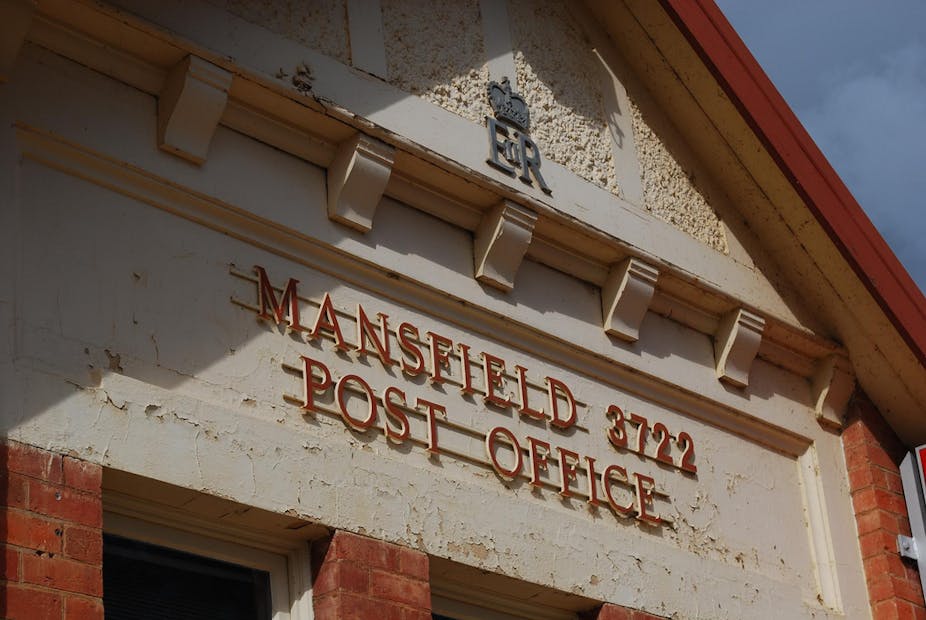Former deputy prime minister and Nationals doyen Tim Fischer was famous for his whistle-stop press conferences outside rural post offices. The location was both symbolic and convenient. Rural and regional post offices often form the heart of small regional communities. They are places to meet, to gather and, importantly, to access basic government and financial services. These post offices, however, are also in seemingly terminal decline.
In late 2013 the Senate established an inquiry into the community role of Australia Post (Post). Most of the submissions, especially those from franchisees of its Licensed Post Offices (LPO) were scathing. The committee’s report, already delayed, is due for release tomorrow. It promises to spark some serious debate about the role of public ownership for Post and what support is needed to keep the organisation and its franchisees operating outside urban areas.
The big squeeze
The Post Office Agents Association, which represents LPO franchisees, noted in its inquiry submission the steady decline in traditional revenue from the sale of stamps and post office boxes, and the steady increase in packages ordered online.
The growth in e-commerce and online auction purchasing in outer urban and regional areas has been strong, in part because of the lack of traditional retail and department store options in these areas. Importantly, the remuneration paid to LPOs for delivering and managing these packages is scant, often not reflecting the significant costs involved in attempting delivery and then storing goods for later collection when addressees are not home.
Franchisees also feel the deal for non-postal retail goods sourced from Post is low – especially compared with what would be available from other wholesalers. The move to internet banking, and away from paying bills in LPOs, is also squeezing incomes.
While Post has promised, in the shadow of the inquiry, to increase remuneration to LPOs, this is seen by many as too little, too late.
The net result of these challenges is that many LPO franchisees are about to hit the wall financially, with dire consequences for themselves and their communities. LPOs in rural areas are now trading at only 3 times annual net profits, leaving many franchisees who borrowed to purchase what they though was a safe business deep in the red.
It is a classic problem in a business relationship when all the power is held by one party – and this power is unchecked - eventually opportunistic behaviour emerges. This is especially true when opportunism is urged on by the powerful party’s shareholder – in this case the Commonwealth government.
The bigger picture
The wider story within which these problems are occurring is a new profit imperative at the corporate level of Post. Also facing the terminal decline of traditional mail, Post is scrambling to restructure its operations with a probable view of privatising its profitable parcels business in the medium term.
This might be good short term news for the Commonwealth, which owns Post, but will almost certainly heap more pressure on the LPOs, especially those in regional areas. A lean, mean and privatised Post will likely have little time for unprofitable, non-urban LPOs.
For the federal Coalition, the competing agendas of supporting rural communities (by the Nationals) and the retreat of government (by the Liberals) could well develop into a significant political fault line inside the government.
Post’s, and its LPOs’ role in rural Australia is both symbolic and practical. Often LPOs are the only place to withdraw money, to pay bills and to access services. Once they leave communities, they will not be replaced. Their departure will thus mark the death of a significant part of those communities.
As such, the questions confronting the Senate Committee are significant. Allowing the continuation of the current decline of LPOs might garner the Commonwealth (and the merchant bankers who manage its privatisations) some extra dollars, but the consequences for the bush will be far-reaching and severe.

